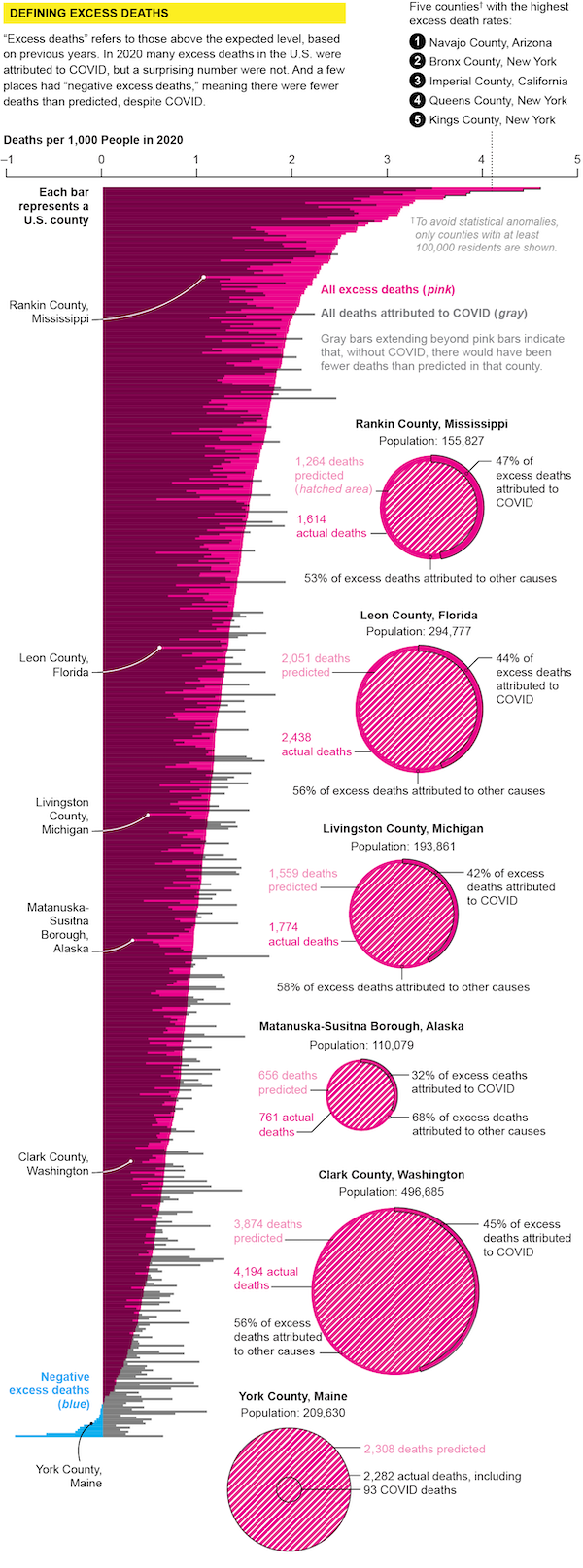Time may be a great healer, but it's a lousy beautician.
Why/How We Die Badly
Observer: The Silence Of The Lambs Is 30, And The Allure Of Serial Killers In Fiction Is Stronger Than Ever
Benedict Cumberbatch Reads a Letter from Kurt Vonnegut with Advice for the Future
For a Volkswagen ad campaign in 1988, Kurt Vonnegut wrote a letter of advice to people living in 2088. In the video above from 2019, Benedict Cumberbatch reads Vonnegut’s prescient letter. His main message is an environmental one: that if we don’t get our shit together, Nature will have its way with us.
The sort of leaders we need now are not those who promise ultimate victory over Nature through perseverance in living as we do right now, but those with the courage and intelligence to present to the world what appears to be Nature’s stern but reasonable surrender terms:
1. Reduce and stabilize your population.
2. Stop poisoning the air, the water, and the topsoil.
3. Stop preparing for war and start dealing with your real problems.
4. Teach your kids, and yourselves, too, while you’re at it, how to inhabit a small planet without helping to kill it.
5. Stop thinking science can fix anything if you give it a trillion dollars.
6. Stop thinking your grandchildren will be OK no matter how wasteful or destructive you may be, since they can go to a nice new planet on a spaceship. That is really mean, and stupid.
7. And so on. Or else.
Vonnegut: definitely a prophet. (via open culture)
County-Level Estimates of Excess Mortality Associated with COVID-19 in the United States (preprint) medRxiv. From the Abstract: ” In the present study, we estimate a generalized linear model of expected mortality in 2020 based on historical trends in deaths by county of residence between 2011 and 2019. We use the results of the model to generate county estimates of excess mortality and excess deaths not assigned to COVID-19 for each county in the US. Overall, we estimate that 437,849 excess deaths occurred in 2020…. Across individual counties, the percentage of excess deaths not assigned to COVID-19 varied substantially, with some counties’ direct COVID-19 tallies capturing only a small fraction of total excess deaths. Our findings suggest that consideration of excess deaths across counties is critical for a full accounting of geographic inequities in mortality during the pandemic.” Scientific American has a summary and this handy chart:

On the negative excess deaths: “Some New England counties actually had negative excess deaths last year—fewer people died than usual—possibly the result of reductions in other causes of death while people stayed at home, the researchers say.” Freedom isn’t free.
BBC Future: “The hand gestures that last longer than spoken languages…Gestures that communicate a specific meaning, like “I don’t know” or “everything is OK”, are called emblematic gestures. “If you look across cultures, these emblematic gestures are used for interpersonal control,” says Cooperrider. “They’re not used to describe objects. You might imagine that people will have a gesture for water, meat, for running and so on. But that’s not the case.
These gestures are primarily about trying to manipulate the social world, to get people to stop doing what they’re doing or to respond to questions.” So, while there might be subtle differences, there are some basic meanings that most cultures seem to communicate with their hands and bodies. Cornelia Müller, a professor of linguistics from European University Viadrina Frankfurt, suggests that the basic building blocks of gesture can be broken down further. She describes four types of hand gestures: ones that mould, draw, act and represent….The Internet has opened up this explosion of informal written communication and there’s been this gap in what we can express in informal writing,” she says, “An emoji is one of the resources people have taken to fill that gap.”…
The Loneliness Of The Full-Time Writer
The magpie has pipped the 'bin chicken' as Australia's Bird of the Year. Photo: AAP
